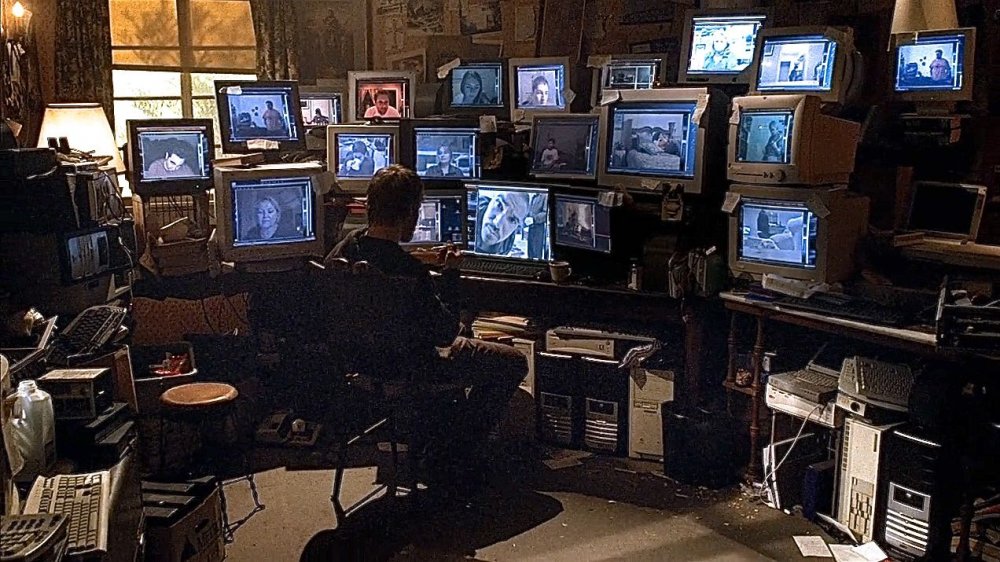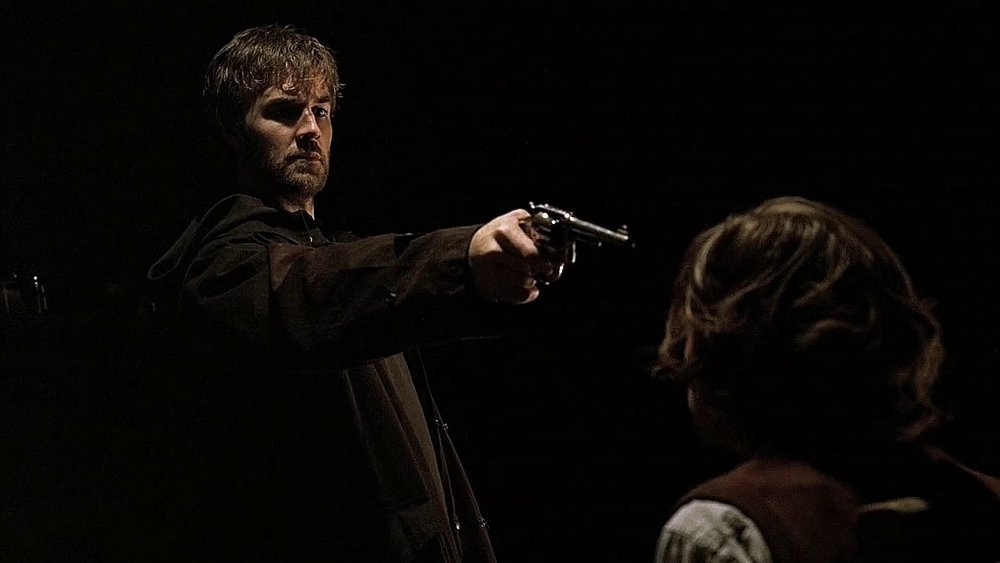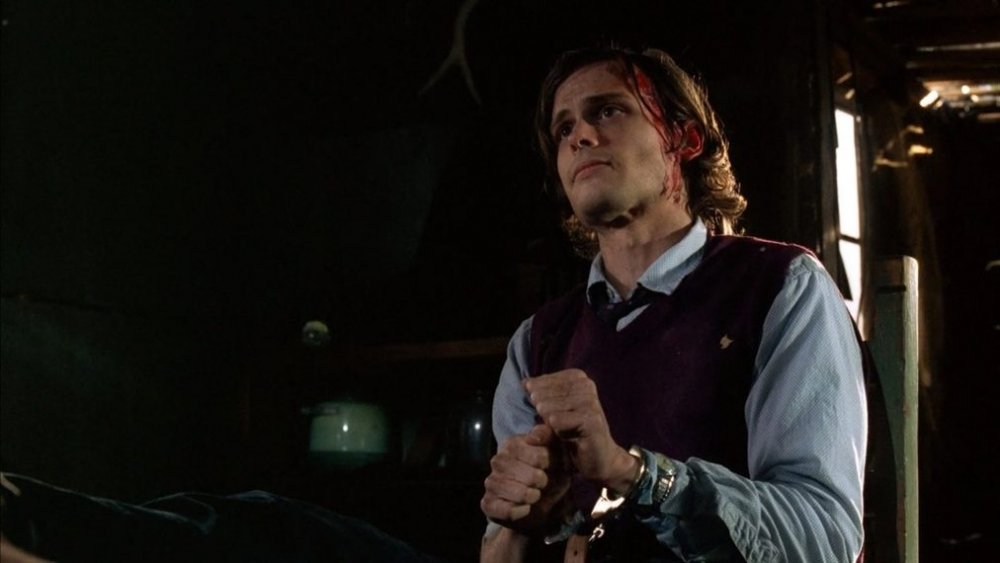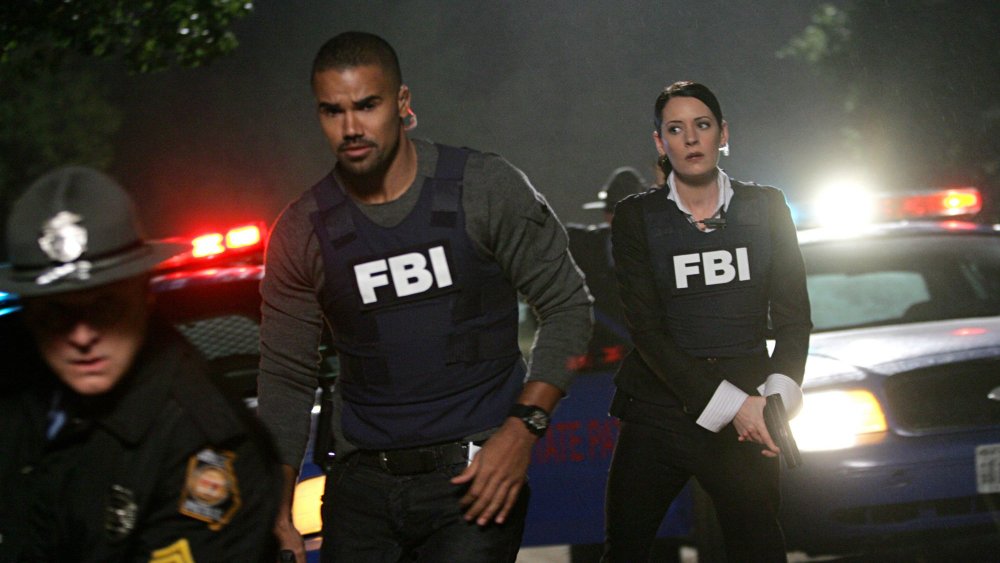The Criminal Minds Episode That Predicted Streaming Culture
Procedural crime shows love to take inspiration from real life, and while Law and Order first used it to actively market itself with the "ripped from the headlines" style, it certainly wasn't the last. As CSI came to the forefront, it tried not only to draw from real life and center forensic science (however imperfectly), but also to anticipate a near future, and of what that science might be capable, eventually. The Internet has been at the heart of many a procedural cautionary tale, too; Law and Order: SVU based an episode around the 2012 attempted murder of a teenaged girl in Wisconsin by her friends, who later explained they were motivated by Slenderman memes and stories. Criminal Minds took a unique angle on this with the 2007 two-part episode made up of "The Big Game" and "Revelations," in which the killer, Tobias Henkel (portrayed by James Van Der Beek), stood out among the rest of your garden-variety murderers for streaming the deaths of his captives online.
The big plot twist of the second half was, of course, the kidnapping of Dr. Spencer Reid (Matthew Gray Gubler), and the subjection of him to this methodology as the team raced against time to find and rescue him. Streaming anything online was still relatively uncommon at the time, with YouTube only just achieving mainstream success and churning up memes of a now-bygone era. We take Twitch, Periscope and Instagram's streaming capabilities for granted now but, back then, most people did not have the kind of infrastructure necessary to accomplish live streaming, much less do it every day, the way we can with smartphones. Criminal Minds definitely gave us a peek, dark as it was, into the future, and it was, unfortunately, more correct than perhaps the episodes' authors might have anticipated.
The pre-streaming era and violence
The idea of posting videos of real violence is as old as the Internet, itself. This usually manifests in the form of shock sites, any of which can be dedicated to taboo sexual material, extreme dark humor, or gore. Hundreds have existed and continue to exist in the legal gray area the Internet provides, and that includes, grimly enough, sites that host videos of murders. For example, the 2007 murder of a Ukranian man by the convicted serial killer duo Viktor Sayenko and Igor Suprunyuk was filmed and, after being presented as evidence at trial, eventually ended up online. Meanwhile, bizarre Internet crimes were the bread and butter of hand-wringing "these kids today" op-eds back then, so, while such postings were extremely rare, it's not as though the phenomenon went unnoticed by savvy television writers at large.
That's the usual order: People somewhere, somehow, obtain what would normally be non-public footage they didn't make and leak it online. The modernization of the Internet, however, provided all-new opportunities for the depraved to collect attention. The most famous of these is undoubtedly Luka Magnotta, the focus of the Netflix documentary Don't F**k With Cats. Like many people who fit into the serial killer mold, Magnotta graduated from animal abuse to murdering people, and uploaded video of the extremely grisly act to a shock site in 2010. This was not streamed, but Criminal Minds certainly anticipated an inevitability of the opportunity the Internet provides and took it a melodramatic step further, perhaps never once considering how soon streaming as a pastime could become not only plausible, but ubiquitous.
Fearmongering or reasonable assumption?
When we watch "Revelations" today, we can be extremely amused by its abundant use of CRT monitors and the manufactured ignorance about the Internet from some of its characters. Crime procedurals are sometimes critiqued for being hysterical about new social trends and how they may or may not provoke or create criminal behavior. That's a fair criticism to make, because television is, by its nature concatenated to an episodic format and mostly interested in entertainment It's also only right to leave room for writers' understanding of human nature, how we'll entertain ourselves in the future, and how it might be used criminally.
The Internet was becoming truly mainstream in 2007, so it was very reasonable to ask why we wouldn't eventually want to be able to instantly share what we're doing in real-time video. The double-edged blade of any new invention, however, is how it will be misused, and streaming has been. In March 2019, a man performed a spree murder in Christchurch, New Zealand, killing 51 people and injuring another 49 at two mosques before being caught and arrested. The initial twenty minutes of his attack on the first mosque were streamed on Facebook Live before administrators intervened to shut down the feed. This is the most famous incident as of yet for this use of technology, but major local incidents of public suicide, assaults, murders and even sexual assaults being streamed on major outlets have been reported since 2016.
Reflecting the human experience on Criminal Minds
The Christchurch shooter had a similar motivation to Tobias Henkel's in doing what he did: It was an attempt to gain attention from the public for his deranged perspective. Both believed violence against their perceived enemies was the way to "wake up" the world. It's a bit crass to say Criminal Minds called it, but it really did, 12 years ahead of time. That can certainly be seen as a condemnation but, sometimes, we as a society are quick to blame the Internet for supposedly causing atrocities like this. Streaming's existence, however, is a conduit for fulfilling an important element of human nature: Connection. Thousands of man-hours are produced and consumed for beneficial purposes, bringing people together to enjoy all kinds of media. It's a tool, and the unfortunate reality is that tool can be used for terrifying ends. It isn't inherently the technology's fault that these terrible things happen.
Criminal Minds specialized as a crime procedural by focusing on the Behavioral Analysis Unit, whose real-life mission is based in understanding why people can reach a point at which they commit the worst crimes possible. The ways people can go wrong are just as much a part of the human condition as all the good things of which we are capable, and a lot of compelling fiction is born of that fact. Unfortunately, that also means television can accidentally predict the future in ways we 'd prefer that it didn't.



